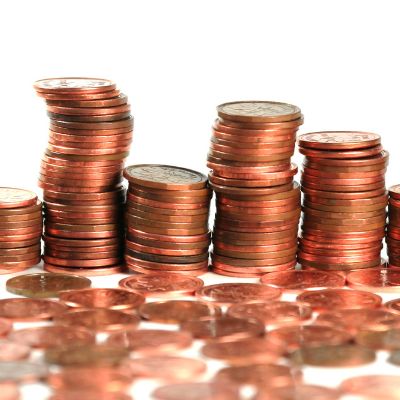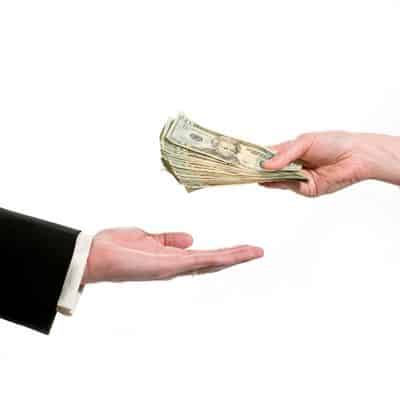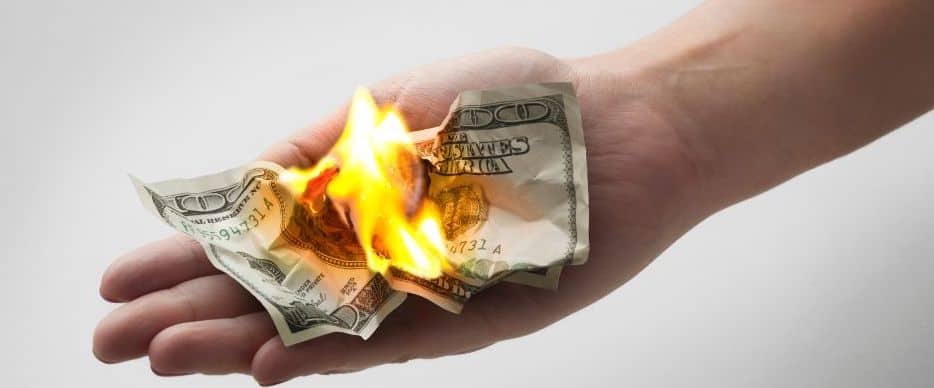
With a huge lump of American cash or coins in your hands, you may think “why not see what happens when you set it on fire”. Why would you ever think that? I have no idea, but hey, people do.
But have you stopped to consider if burning U.S. money is illegal and what might happen to you if you burn some?
While having a significant amount of money is something to be proud of, it’s important to remember that burning it is a criminal offence in the United States. Not only is it illegal, but it also carries severe consequences, such as fines and up to 10 years in prison. Therefore, finding other ways to spend or invest your wealth is best.
There are specific laws surrounding the protection and use of U.S. money and coins and this article will outline the ‘why’s’ of why you should not burn U.S. Money or coin.
Is It Illegal To Burn Money In The U.S.?
The immediate short answer to this question is, yes!
It is illegal to burn U.S. money which also includes the burning of U.S. coins. There are specific rules against it that can be found under section 333 of the U.S. Criminal Code that is enforceable by the federal government if they see fit to do so.
Section 333 of the U.S. Criminal Code generally states that the following actions that are listed below are prohibited as it pertains to U.S. Money which also includes U.S. coins.
- Mutilation of U.S. currency
- Cuts to U.S. bills
- Defacing U.S. money
- Disfiguring in any way of U.S. money
- Perforating U.S. Money
- Unites or cements together any U.S. money
As a rule, never do anything to your money that might get you in trouble with the law. It can be tempting to experiment with burning or destroying money now that you are reading about it but a strong word of caution – if you are found to be burning U.S. money, you can be prosecuted!
Why Is It Illegal To Burn U.S. Money?
In accordance with the Currency and Banknotes Act of 1928, altering a banknote by means of printing, stamping or writing on it is considered a criminal offence. This is because defaced banknotes can be mistaken for forged or counterfeit notes.
Generally, U.S. paper or coin currency needs to be able to withstand the rigors of exchanging multiple hands over multiple years.
If something were to happen to this currency, it would be difficult to maintain an adequate supply of money needed for daily use not only in the United States but abroad as well. The U.S. Treasury has outlined the average lifespan of U.S. bills and expects each bill to circulate for the length of time estimated.
In the table below, you can find the average life expectancy of a few U.S. bills and how many are currently in circulation if they are not altered, burned, or destroyed in any way.
| Denomination | Estimated Lifespan | How Many are in Circulation? |
| $1 | 6.6 years | 13.1 billion |
| $5 | 4.7 years | 3.2 billion |
| $10 | 5.3 years | 2.3 billion |
The burning of U.S. money was made illegal because this in effect renders the bill or coin unfit for use in the currency system and abroad.
The U.S. bill in any denomination can be in any country at any given time and this plays into the delicate balance of keeping as much of it as possible in circulation for all to access it when they need it.
Not only would you be literally burning money for that sake of it, but it costs the U.S. Treasury to make that money back at the U.S. Mint when it runs low!
What Is U.S. Money Made Of And How Is It Different To Other Currencies?
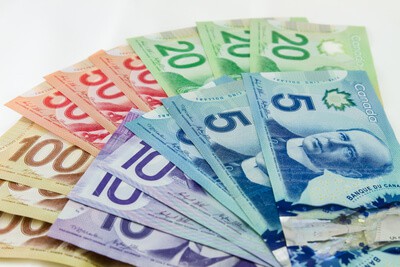
U.S. paper money is still made of mostly paper or 75% cotton and 25% linen. This makes it highly susceptible to potential destruction or burning due to its flammable nature.
In comparison, Canadian money is made of polymer making it a more flexible and durable currency that can withstand a bit of wear and tear. Unlike American money, Canadian money can take being soaked, stepped on and crumpled, and even potentially torn!
What About Money In Circulation That Looks Worse For Wear?
Granted, you may have come across U.S. money that has seen better days with tape stuck to it, corners missing, smashed coins, dented coins, or even half missing coins but rest assured, if it was unfit for service, it would have been inspected and removed by the U.S. Treasury and ultimately replaced by new currency in circulation.
What Is The Punishment For Burning U.S. Money?
As a rule, U.S. money, which includes bills and coins, should never be burned, destroyed, or altered.
So, what happens if you are found to have done this? The punishment for such actions, as stated in a section in the U.S Criminal Code, would be a fine, undetermined in the written law of the Criminal Code, and possible prison time that could range up to six months.
And again, this would be punishment for anyone that is found guilty of defacing, mutilating, or altering U.S. bills or coins.
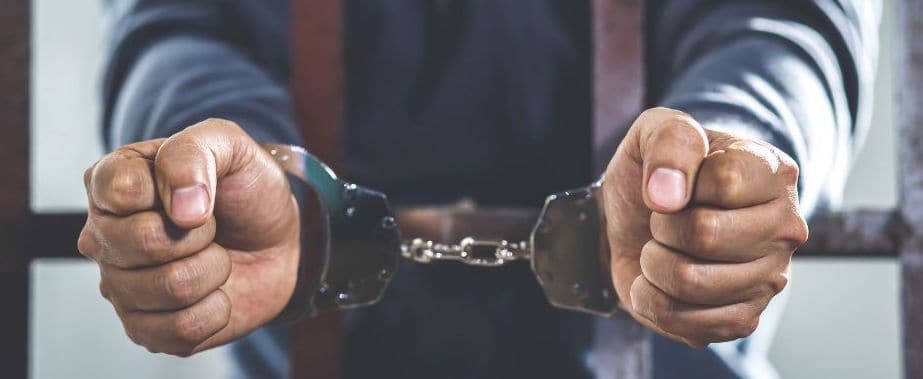
The Bottom Line: Safeguard Your Money!
There are clear rules that protect U.S. money from any nefarious people who think they could get away with destroying or altering bills or coins.
Although it may seem exciting to now go out and burn some American money and re-enact your favorite wild scene from the movies or pretend you are in a music video and start tossing money around or burning it – it would be a costly mistake both in money and potentially time lost!
The best possible use for your paper money or coins would be to save it, invest it, protect it, and spend it, but never to destroy it.
Thanks for reading folks!
Geek, out.
Other Frequently Asked Questions
Is Defacing Bank Notes Illegal?
According to the Currency and Banknotes Act of 1928, altering or defacing a banknote in any manner is considered a criminal offence. It is worth noting that destroying a banknote entirely is not against the law. However, per the Coinage Act of 1971, intentionally destroying a coin minted after 1969 is considered a punishable offence.
Is It Illegal to Burn Money in Countries Other than the US?
The legality of burning money varies by country. Some countries may not have specific laws against it, but it could be considered the destruction or defacement of illegal currency. Others may not have specific laws, but others may be used to prosecute. Therefore, it’s best to check the particular country’s laws to confirm.

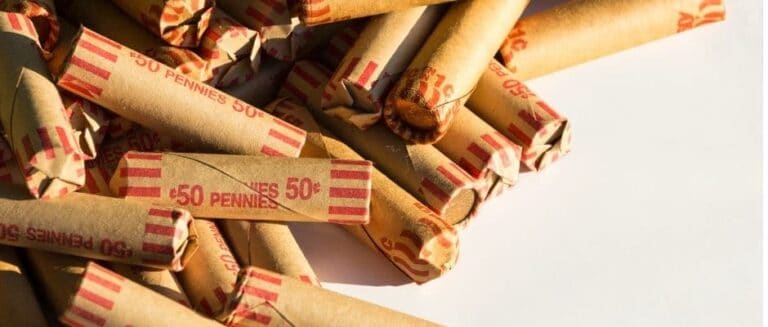

![Corporate Jobs Meaning [What You Don’t Know]](https://thefinancialgeek.com/wp-content/uploads/2022/05/corporate-job-meaning-3.jpg)

